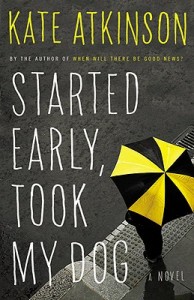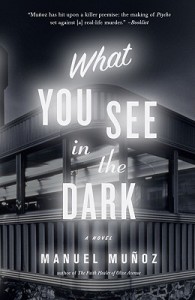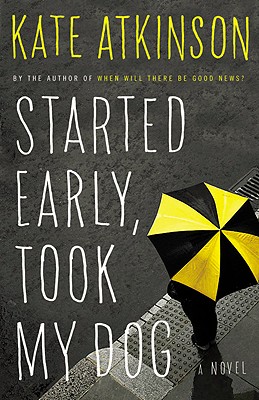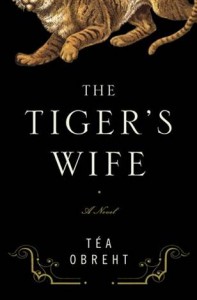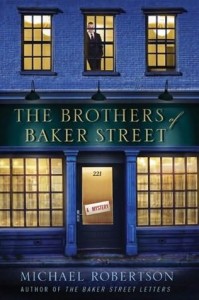 Brett Battles’s fourth Jonathan Quinn thriller, The Silenced (Dell, 4/5/11), is about to drop so I invited him by to talk about it and the 237 other projects he has up his sleeve.
Brett Battles’s fourth Jonathan Quinn thriller, The Silenced (Dell, 4/5/11), is about to drop so I invited him by to talk about it and the 237 other projects he has up his sleeve.
First, the description for Silenced:
Quinn has a new client and an odd job: find and remove the remains of a body hidden twenty-five years ago inside a London building now scheduled for demolition.
But Quinn, his deadly and beautiful girlfriend Orlando, and their uniquely talented colleague Nate are being watched. Suddenly caught in the crossfire between two dangerous rivals who demand the remains, Quinn and his team must learn who the dead man was and why he’s still so important. Because a plot stretching from London to Hong Kong to the former Soviet Union is rapidly unraveling. And Quinn hasn’t just been hired to tie up loose ends—he is one.
Pop Culture Nerd: The launch party is this Saturday, 3/26, at Book Soup. Can you confirm if there will be cake and acrobatic chimps?
Brett Battles: While the acrobatic chimps are confirmed, I’ll have to work on the cake. Any preferences? [Ed. note: Banana nut ice cream cake!] I am very excited that The Silenced is finally coming out. I think it’s the best Quinn yet.
PCN: What did you do to him?
BB: I get into Quinn’s past, who he was before he was Jonathan Quinn. And I make his past get tangled with his present. That was a lot of fun! For me, but probably not for him.
PCN: Oh, good, I like tanglediness. Silenced isn’t the only new release you have. You just e-published two short stories and another thriller, Little Girl Gone. Only one of these has Quinn. Want to elaborate?
 BB: One of the short stories, “Just Another Job,” is a Quinn. It’s from when he was a younger cleaner and still working with his mentor, Durrie. The novel, Little Girl Gone, is the first of a new series featuring Logan Harper. All three should be available at the Kindle store and other places where e-books are sold, such as smashwords.com.
BB: One of the short stories, “Just Another Job,” is a Quinn. It’s from when he was a younger cleaner and still working with his mentor, Durrie. The novel, Little Girl Gone, is the first of a new series featuring Logan Harper. All three should be available at the Kindle store and other places where e-books are sold, such as smashwords.com.
PCN: Who’s Logan Harper and why did you decide to start another series with him?
BB: Logan is a former soldier who went into security work at a defense contractor after he finished college. While he was working there, something bad happened that got him fired and caused his wife to leave him. That’s all backstory, of course; Little Girl Gone opens two years later. Logan has moved back to his hometown of Cambria, California, and is working at an auto-repair garage owned by his almost 80-year-old father. He’s there because keeping life simple is the only thing that helps him move on from the past, a past he blames himself for but shouldn’t.
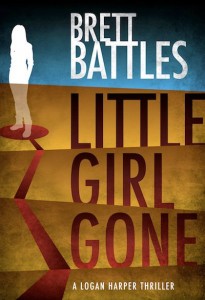 I wanted to write a series about a guy who isn’t a professional like Quinn, but who is resourceful and gets drawn into helping others. His father and his father’s group of friends are going to play a large part in finding people who need Logan’s help, whether he wants them to do that or not.
I wanted to write a series about a guy who isn’t a professional like Quinn, but who is resourceful and gets drawn into helping others. His father and his father’s group of friends are going to play a large part in finding people who need Logan’s help, whether he wants them to do that or not.
PCN: Also on deck is a YA, your 359th book this year. What inspired you to write that?
BB: Definitely my kids. I wanted to write an adventure I thought they might enjoy. It’s called Here Comes Mr. Trouble and should be out mid-April.
PCN: Can you reveal a little of its plot?
BB: A little, perhaps. Thirteen-year-old Eric Morrison thinks he might be going crazy. His whole life has suddenly turned upside down. Among other things, he’s forgetting homework, unable to get to his classes on time, and constantly getting bullied on his way home from school. Not to mention the fact that his mom is missing and his father doesn’t seem to notice. Dazed by this whirlwind of chaos, Eric finds an ad in a phone book that seems to be tailored just for him, a service for kids who are in trouble. He calls the number, but if he thought things were weird before, they were nothing compared to what’s about to happen when Mr. Trouble and the Trouble family arrive to help him.
PCN: I want to read that and I’m wayyy past being a YA. You’ve gone the traditional publishing route and now doing some e-publishing. How do you compare the two experiences?
BB: Well, I’m still very new to the whole e-publishing world, but probably the biggest difference is that instead of having to wait a year to a year and a half for my books to come out after I finish writing them, there is only a month or two, which is spent copy editing, getting a cover made, etc. I enjoy being in control of the cover design. When you’re with a publisher, they often just present you with a cover and say, “Don’t you love it?” and you’re expected to say yes.
The big thing legacy publishing has going for it is the distribution of printed books, but with fewer and fewer bookstores, and more and more people buying e-readers, that’s becoming less important. Oh, and before, if I wrote a book my agent or publisher didn’t want to bring out, I’d have to stuff it in a drawer. Now I can write what I want, throw it out there, and if it finds an audience, great! If not, no problem either.
PCN: The Romantic Times Booklovers Convention comes to L.A. next month. After narrowly losing the Mr. Romance title last year despite running around with no pants, how do you plan to campaign for it this year?
BB: I’ve made a special DVD that will be in each of the attendees’ bags. Inside five of the DVD sleeves there will be a golden ticket. Those five lucky winners will get…well, best not go into it here.
PCN: I agree. Based on what I saw on the DVD, what you have planned has been illegal in the U.S. and Mexico since 1973. Looks fun, though. Thanks for chatting, Brett!
L.A. folks, the Book Soup launch is 4 p.m. this Saturday; click here for more info about the store. Hope to see you there!
Buy The Silenced from Amazon | B&N| Indie Bookstores
| B&N| Indie Bookstores
 I haven’t been posting American Idol recaps this year because I haven’t been home most nights the show is on. Finally found myself with a little free time yesterday evening so I tuned in, though I wasn’t thrilled about the theme being Elton John songs. He and Bernie Taupin have written some great tunes but their catalog is ballad-heavy and I just wasn’t in the mood. I wish we could have Springsteen or U2 night. Hell, I’d take Bryan Adams, Eagles, Bob Seger. We need some rock ‘n’ roll and I don’t mean what James Durbin is doing.
I haven’t been posting American Idol recaps this year because I haven’t been home most nights the show is on. Finally found myself with a little free time yesterday evening so I tuned in, though I wasn’t thrilled about the theme being Elton John songs. He and Bernie Taupin have written some great tunes but their catalog is ballad-heavy and I just wasn’t in the mood. I wish we could have Springsteen or U2 night. Hell, I’d take Bryan Adams, Eagles, Bob Seger. We need some rock ‘n’ roll and I don’t mean what James Durbin is doing.
